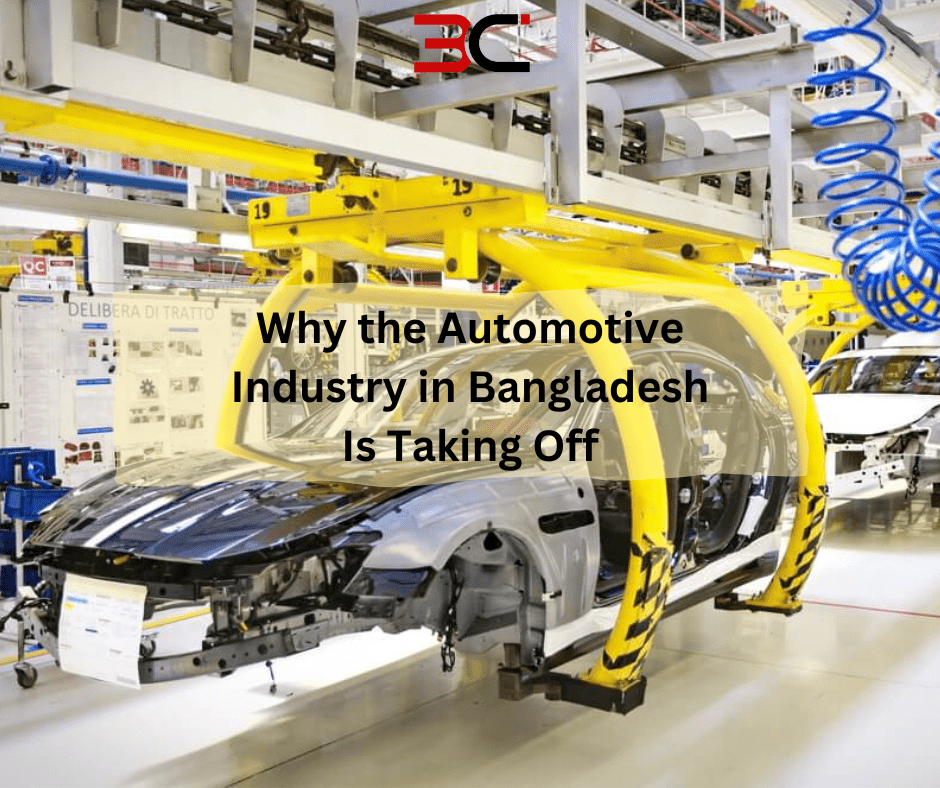A sector that is expanding in Bangladesh is the automobile industry. As a result of socioeconomic progress, the car sector has grown more modestly than in the previous 10 years.
This growth can be attributed to the influx of large car plants, including Mitsubishi, Toyota, Hino, and Tata, that have been assembling passenger cars and commercial vehicles. Still, Bangladesh’s passenger automobile penetration is quite low, when compared to other Asian nations. Additionally, vehicle sales have decreased in the previous 7 years as a result of the Covid-19 epidemic.
This post will explore why the automotive industry in Bangladesh is taking off and what factors have contributed to its success.
The Automotive Industry in Bangladesh: Overview
The automotive industry in Bangladesh is the third largest in South Asia. It has been growing steadily over the past few years. According to BRTA (Bangladesh Road Transport Authority) data, the number of passenger cars in Bangladesh has increased by 5.43% since 2011. According to the study of LightCastle,
- With only 2.5 car owners per 1,000 people, Bangladesh has fewer car owners per 1,000 people than either India or Myanmar.
However, according to industry analysts, the market for passenger automobiles is not more than Tk 5000 crore.
The Bangladeshi automotive industry is largely supported by local parts suppliers and manufacturers. This has helped to create a self-sustaining industry that is capable of producing cars without relying on foreign parts. Currently, Bangladesh has several large car plants that assemble passenger cars as well as commercial vehicles. These include the following –
- Akij Motors
- ACI Motors (Yamaha)
- Aftab Automobiles
- Bangladesh Machine Tools Factory (BMTF)
- Bangladesh Auto Industries Limited (BAIL)
- Bangladesh Honda Private Limited (a subsidiary of Honda)
- Fair Technology Limited (Hyundai)
- Ifad Autos Ltd (Ashok Leyland)
- Jamuna Automobiles
- Niloy-Hero Motors (in corporation with Niloy Motors and Hero MotoCorp)
- Nitol Motors
- PHP Automobiles (Proton)
- Pragati
- Karnaphuli wheels(Renault Bangladesh)
- Runner Automobiles
- Roadmaster Motors Limited
- Rancon Motor Bikes Ltd (Suzuki Motorcycle)
- Uttara Motors (Suzuki)
- Walton Motors
The government also provides incentives to encourage more people to purchase cars in Bangladesh, such as tax breaks and duty exemptions for certain types of vehicles. This has helped to create a thriving domestic market for vehicles.
Moreover, there are a number of organizations in Bangladesh that are working hard to improve the safety standards of vehicles and the road infrastructure in the country. This introduces new regulations and safety features to ensure that all vehicles meet a certain level of safety. In addition, the government also provides a network of roads and highways to facilitate the growth of the automotive industry.
The Demand for New Cars in Bangladesh
As more people aspire to own their cars, the automobile sector has seen significant growth. Especially in major cities such as Dhaka, the increased road network and improved infrastructure have made it easier for consumers to purchase new cars. The government has also introduced various incentives for automakers and dealers, making it easier for them to operate in Bangladesh.
As reported by the BRTA (Bangladesh Road Transport Authority),
- Only 20,093 passenger cars were registered in 2020, accounting for about 5.3% of the total volume of the automotive sector
The automotive industry in Bangladesh is seeing an increasing demand for new cars. This is due to a number of factors, such as –
- The rising disposable income of the population
- Improvements in infrastructure
- Increased availability of financing options
- The contribution of the middle class
- The demand for upgrades from existing motorcycles or older vehicles
According to a poll by Lightcastle,
- A bank loan will be used by 28% of consumers to purchase their vehicle.
The availability of financing options should make it easier for consumers to buy new cars. Banks and non-banking financial institutions are offering various auto loan packages. Due to the pandemic, banks are seeking to release loans at the lowest rates possible, which now range from 7% to 9%, because they have extra cash. This provides customers with easy and affordable financing options.
The Future of the automotive industry in Bangladesh
The automotive industry in Bangladesh is expected to experience considerable growth in the coming years. The government has taken steps to improve the sector and encourage local production. In addition, the government has taken steps to encourage foreign investment in the automotive industry, making it easier for foreign companies to invest in Bangladesh.
By 2025, the majority of investments in the automotive industry will go into SKD and fundamental CKD assembly factories rather than full-scale production. Research indicates that,
- The cost of the automobile industry as a whole might be reduced by 15% to 40% by 2025 if automobiles were assembled locally.
Many members of the middle and lower classes would purchase family and individual vehicles if prices were to drop. According to another report,
- By 2025, brand-new automobiles will account for 60% of all private car purchases, which also predicts a doubling of yearly sales.
Many businesses have already established assembly factories or are preparing to do so to take advantage of this potential.
Finally, there are plans to introduce new technology into the automotive industry. This could include advancements in electric and hybrid vehicles, as well as improved safety measures for cars on the road. As technology improves, we are expecting an improvement in the quality of vehicles produced in Bangladesh.
The demand for cars in Bangladesh is projected to continue growing as the population increases and more people are able to afford a vehicle. This could lead to an increase in manufacturing capacity, resulting in more vehicles being produced locally.
What can be improved in the automotive industry in Bangladesh?
In order to maximize the potential of the automotive industry in Bangladesh, there are certain areas that need to be addressed. Let’s take a look at the most important suggestions.
- Firstly, the lack of after-sales services, such as spare parts and repair services, is a major concern. Many of the car plants in Bangladesh are unable to provide these services. This means that customers have to travel long distances for repairs or find a third-party mechanic.
- Secondly, vehicle safety standards need to be addressed. Currently, the safety standards for cars in Bangladesh are not up to international standards. Hence, this can affect both the safety of drivers and passengers. Additionally, the lack of safety regulations makes it difficult for manufacturers to develop modern cars with advanced safety features.
- Thirdly, the government might lower import taxes on cars to foster sustained growth in the automotive industry. The existing tariff rate of 128% to 827% can be changed since it is too costly for manufacturers. Chairman of the Runner Group, Hafizur Rahman believes that the National Board of Revenue (NBR), the Ministry of Industries, and the Bangladesh Investment Development Authority (BIDA) should coordinate their efforts and develop long-term strategies for the sustainable growth of the regional auto industry.
- Finally, there is a need for more investment in research and development. While some local car makers have begun investing in R&D, the industry as a whole needs to focus more on innovation if it is to remain competitive. This includes investment in new technologies, such as electric vehicles and autonomous driving systems.
Bottom Line
The automotive industry in Bangladesh is booming. It is expected to continue to grow in the coming years. There is still a lot of potential for growth in this sector, as long as the proper measures are taken to improve infrastructure and regulations.
In addition, companies need to ensure that their cars are affordable and of good quality. If the government can follow the suggestions described in this article, the automotive industry in Bangladesh can become even more competitive, paving the way for a brighter future.

